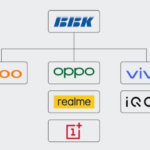Throughout human history, technology has played an important role in shaping the course of civilization. It has shaped the nature of human society, the way people interact, and the values of the culture. It has helped to develop advanced economies and contribute to the rise of a leisure class. It has also facilitated political oppression and has affected the lives of individuals.
A person, a group or a business may face technology issues when introducing a new product or service or when using a new technological advancement. A proposed new technology may present risks to the environment, to other species and to the general population. It will also incur costs to produce, operate and maintain. It is crucial to understand the nuances of each technology and the implications for all of its parts. In addition, there are many international organizations that help to shape the process of developing norms for the use of new technologies.
In the twentieth century, the concept of appropriate technology began to emerge. It describes situations where a new technology is not desirable, but it will be necessary to provide centralized infrastructure. This could include situations where a nation would be unable to produce the technology without imports, or where a new technology might require imported parts or skills.
A variety of social, legal and political tools are used to shape the development of technology in beneficial directions. These tools involve the development of common standards, the enforcement of technological rules, and the creation of new structures.
In addition to the technological advancements of the past few decades, there are also societal and sustainability challenges that require global cooperation. For instance, the proliferation of the Internet has lowered communication barriers and created new subcultures. However, there are still many countries that are rethinking the rules for transferring technology across borders. This is especially important for small and medium-sized enterprises (SMEs). In addition, SMEs can also leverage outside research to produce new innovations for the marketplace.
In order to promote the spread of new technologies around the world, governments must create common standards and guidelines that govern their operation. This can be a difficult task, as the relationship between a technological system and its larger context is very complicated. The development of these rules involves many complex processes and requires a high level of coordination. In addition, it requires a great deal of human control. Even automatic systems require some degree of human oversight. This is particularly true in the Internet of Things (IoT) environment, where billions of devices are connected to the Internet. In this case, coordination is even more difficult.
The emergence of technology is often associated with the dystopian literature of George Orwell and Anthony Burgess. These writers wrote books such as Nineteen Eighty-Four and Brave New World. Both of these works contain criticisms of the way technology was used. In some cases, the technology itself was the main source of the negative criticism.










